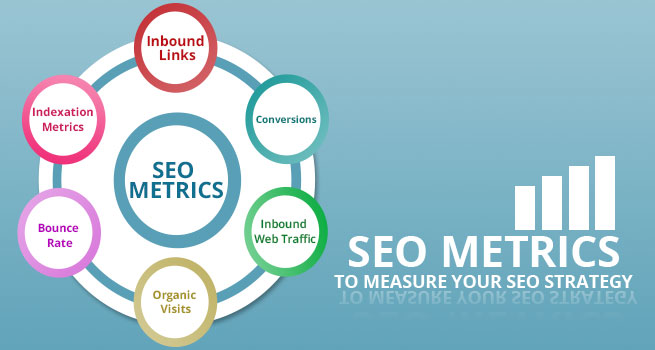Search engine optimization (SEO) is a vital component of any successful online strategy, but how do you know if your SEO efforts are paying off? To gauge the effectiveness of your SEO campaigns, you need to rely on key metrics and tools that can provide valuable insights. In this blog post, we’ll explore the essential metrics and tools for measuring SEO success and ensuring your digital marketing efforts are on the right track.
Key SEO Metrics to Monitor

- Organic Traffic: The number of visitors coming to your website from search engine results. Increasing organic traffic is a primary goal of SEO efforts.
- Keyword Rankings: Tracking the positions of your target keywords in search results. Monitoring improvements in keyword rankings can provide a clear picture of SEO success.
- Click-Through Rate (CTR): The percentage of users who click on your website’s link when it appears in search results. A higher CTR is often a sign of more compelling meta titles and descriptions.
- Bounce Rate: The percentage of visitors who leave your site after viewing only one page. A lower bounce rate suggests that your content is engaging and relevant.
- Conversion Rate: The percentage of visitors who take a desired action on your website, such as making a purchase or signing up for a newsletter. Increased conversions are a clear sign of SEO success.
- Page Load Time: The time it takes for your web pages to load. A faster page load time is associated with better user experience and higher search engine rankings.
- Pages Per Session: The average number of pages viewed by a visitor during their session. A higher pages-per-session metric often indicates that your content is engaging and your site is easy to navigate.
- Backlinks: The number and quality of external websites linking to your site. Earning high-quality backlinks can improve your website’s authority and search engine ranking.
- Domain Authority: A metric that quantifies the overall authority and trustworthiness of your website in the eyes of search engines.
Essential SEO Tools

- Google Analytics: A free and comprehensive tool for tracking website traffic, user behavior, and conversion data. It provides insights into the majority of key SEO metrics.
- Google Search Console: This free tool helps you monitor how Googlebot views your site, providing data on indexing, crawl errors, and keyword performance.
- SEMrush: A robust SEO platform that offers keyword research, competitive analysis, and site audit features to monitor your SEO performance.
- Moz: Moz provides a suite of SEO tools, including Moz Pro and Moz Local, which help with keyword research, backlink analysis, and local SEO optimization.
- Ahrefs: A powerful SEO tool that specializes in backlink analysis, site audits, and competitive research, making it valuable for tracking SEO success.
- SE Ranking: An all-in-one SEO platform offering keyword tracking, on-page SEO audit, and competitor analysis tools to measure your SEO effectiveness.
- Screaming Frog SEO Spider: A website crawling tool that provides detailed insights into technical issues and on-page SEO elements.
Setting and Tracking Goals
To measure SEO success effectively, it’s crucial to set clear, measurable goals. Whether you aim to increase organic traffic, improve keyword rankings, or boost conversions, these goals should align with your overall business objectives. Regularly track your chosen metrics using the aforementioned tools, and be prepared to adapt your SEO strategy as needed.
Conclusion
Measuring SEO success is an ongoing process that involves tracking a range of key metrics and utilizing the right tools. By monitoring these metrics and continuously refining your strategy, you can ensure that your SEO efforts are driving real results and contributing to the growth of your online presence. Stay diligent, be patient, and keep your finger on the pulse of your SEO performance to achieve long-term success in the ever-evolving digital landscape.
